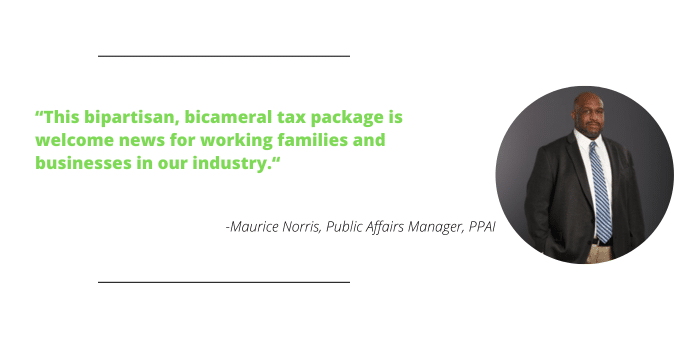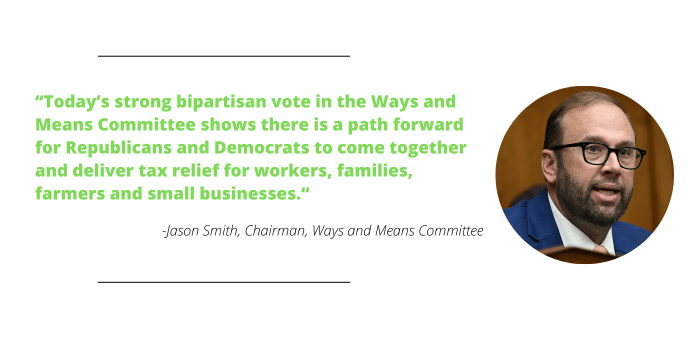In an election year, the Republicans and Democrats have managed to do the unthinkable: work together for the greater good. Both sides have championed causes that bring clear aid to American people, and in a bipartisan effort, the House of Representatives’ Ways and Means Committee has advanced a legislative package that will benefit job creators, small businesses and American families.
The Tax Relief for American Families and Workers Act includes legislation that accomplishes:
- Pro-growth economic policies.
- Deliberate aid for small business in the wake of disasters.
- Supports working families with an enhanced child tax credit.
“This bipartisan, bicameral tax package is welcome news for working families and businesses in our industry,” says Maurice Norris, MAS, PPAI’s public affairs manager.
- The Ways and Means Committee approved the measure in a 40-3 vote after its Republican chairman and Democratic counterpart announced the deal.

Benefits For Businesses And Families
The proposal benefits both businesses and families in different but specifically targeted ways.
As far as pro-growth business-related aspects of the proposal, it contains a few advantages businesses could utilize:
- Restores Section 174 (immediate) expensing for U.S.-based research and development investment for businesses of all sizes.
- Allows interest deductibility for businesses forced to borrow at high interest rates to meet payroll obligations or attempting to expand their operations.
- Allows 100% expensing for investments in machines, equipment and vehicles.
- Removes the current double taxation that exists for businesses and workers with footprints in the U.S. and Taiwan.
The Act also focuses on how businesses can react and survive after unavoidable disaster strikes:
- Increases the amount of investment that a small business can immediately write off to $1.29 million.
- Adjusts the reporting threshold for businesses that use subcontract labor from $600 to $1,000.
Attaining these businesses benefits in a bipartisan effort meant also including support for working families by way of an enhanced child tax credit.
- It would see a phased increase to the refundable portion of the child tax credit for 2023, 2024 and 2025.
- It would eliminate a penalty in the child tax credit for larger families.
- Taxpayers would be able to use either current or prior-year income to calculate the child tax credit in 2024 or 2025.
- The child tax credit would adjust for inflation starting in 2024.
“Today’s strong bipartisan vote in the Ways and Means Committee shows there is a path forward for Republicans and Democrats to come together and deliver tax relief for workers, families, farmers and small businesses,” says Ways and Means Committee Chairman Jason Smith. “I look forward to the House and Senate passing this legislation to help working families and Main Street businesses thrive.”
The Act would also effectively end the Employee Retention Tax Credit, which the committee claims will save taxpayers $70 billion by avoiding fraud and cost overruns.

What’s Next?
The House is scheduled for recess this week, meaning the earliest it could hold a floor vote would be the week of January 29.
“This bill is still a long way from complete,” Norris says. “However, widely supported policies such as the child tax credit and increasing the limits on depreciable business assets, among other proposals that are baked into the Ways and Means Committee markup, will hopefully continue to gain support on the Hill when this comes to a floor vote. Due to the fluidity of huge tax legislation like this, PPAI will continue to monitor its progression for any riders that could be detrimental to our members.”



